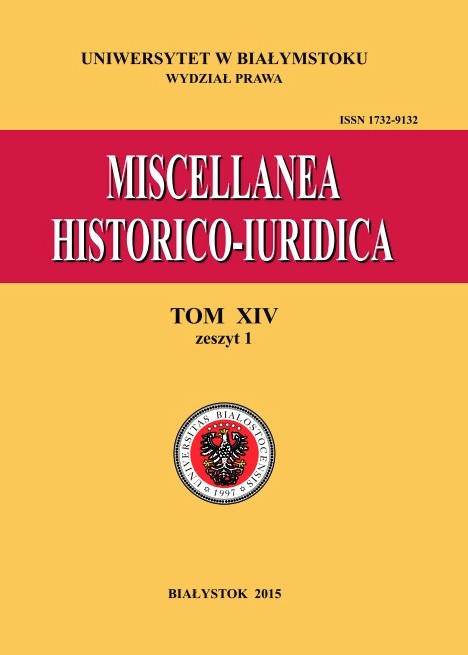Ład ekonomiczny po wielkim kryzysie gospodarczym w koncepcji Stanisława Grabskiego
Ключевые слова:
ład ekonomiczny, Staniław Grabski, kryzys ekonomiczny, II Rzeczpospolita PolskaАннотация
Stanisław Grabski, Professor of Economics at the Faculty of Law at the Jan Kazimierz University in Lwów, rejected the idea that the great economic crisis (1929–1933) would lead to the collapse of capitalism. He advocated the development of the economy in stages, recognizing changes in societal needs and the emergence of a new technique for a boost to development, granted by the State and governed by the primacy of the economy. He distinguished three groups of socio-economic regimes, using as a criterion for the award a way for economic cooperation of the people. In the third group, including capitalism, the units have carried out activities on the basis of equality and freedom, subject to the rules of law. Capitalism in its two phases of development and was heading to the third, which was formed after the great economic crisis. Despite the passage of years it has kept its basic values and principles and still motivates individuals to be active. Therefore, Grabski found the system of capitalism dynamic and flexible, able to survive the economic crisis of 1929, and further develop. He argued that after the crisis there will be a new order, in which the economy will function according to the following models: the democratic-liberal, corporative-fascist, the economy dominated by large corporations and with a very limited role for the State of the economy based on trade-offs of monopolies and trade unions and statist model. Grabski did not rule out a communist economy. Among the most liberal democratic models with a sizeable small business sector, France, whose economy effectively defended itself against crisis. Although the global economy was already dominated by monopolies, Grabski advocated the use of this model in Poland.
Библиографические ссылки
Grabski S., Ekonomia społeczna, t. 1–10 (oddzielnie zatytułowane), Lwów 1927–1933.
Grabski S., Ustroje społeczno-gospodarcze, t. 8, Lwów 1929.
Grabski, S., Współczesny kapitalizm, t. 9, Lwów 1930.
Grabski S., Dążenia rozwojowe współczesnego kapitalizmu , t. 10, Lwów 1933.
Czapliński W., Galos A., Korta W., Historia Niemiec, Wrocław 1981.
Polski słownik biograficzny, t. VIII/1, z. 36, Wrocław–Kraków–Warszawa 1959.
Taylor E., Historia rozwoju ekonomiki, t. II, Poznań 1957.







